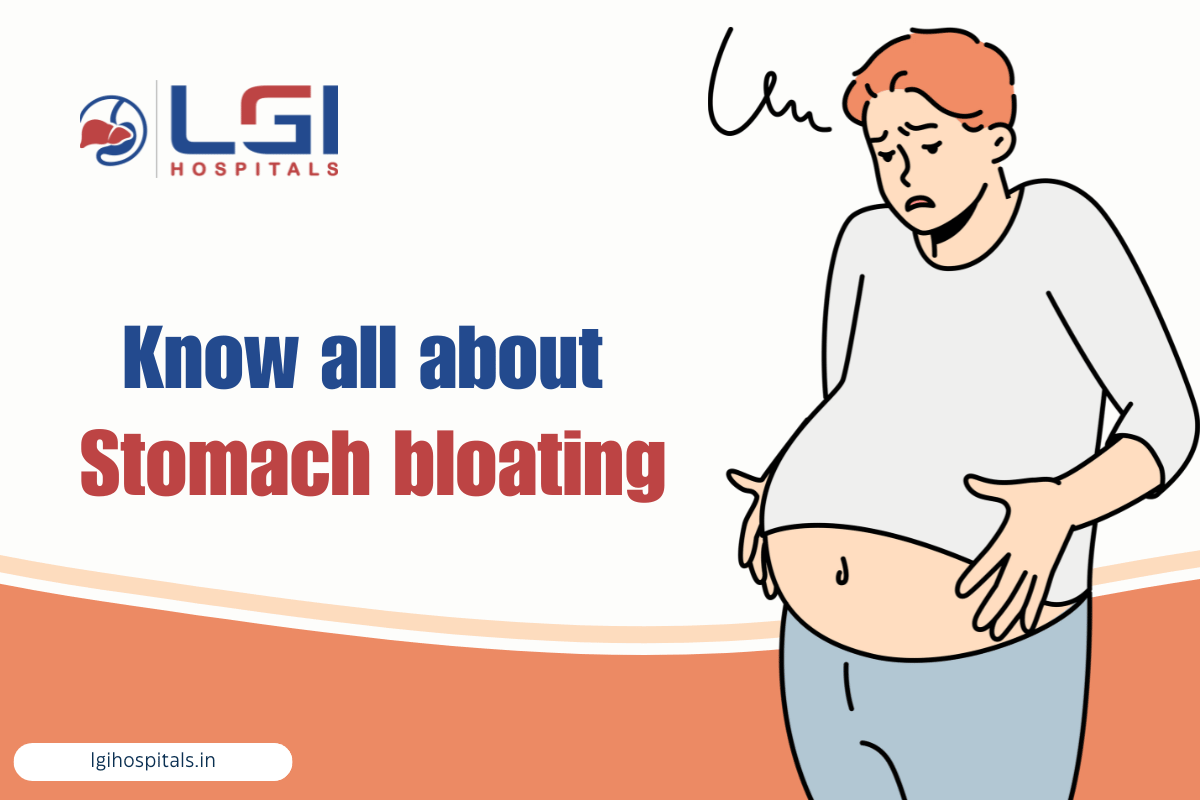Have you ever wondered what stomach bloating is and why it happens so often? Most people feel bloated after a heavy meal, but if it becomes a frequent problem, it may indicate something more than just overeating. Stomach bloating can make you uncomfortable, affect your daily life, and in some cases, signal underlying digestive issues.
In this blog, we’ll explain what stomach bloating is, the most common reasons behind it, and when you should seek medical help.
What is Stomach Bloating?
Simply put, stomach bloating is the uncomfortable sensation of fullness, tightness, or swelling in the abdomen. It may also cause visible abdominal distension, gas, or cramping. While occasional bloating is normal, constant or severe bloating is a sign that your digestive system needs attention.
Why Does Stomach Bloating Happen?
Here are some common reasons that explain what causes bloating:
1. Excess Gas in the Gut
Gas builds up when you swallow air while eating or drinking, or after consuming fizzy drinks. This is one of the most frequent causes of bloating.
2. Food Sensitivities
Certain foods like dairy (lactose intolerance), wheat (gluten sensitivity), and high-fiber vegetables may trigger bloating in some individuals.
3. Constipation
When stools remain in the intestines for too long, it slows digestion and traps gas, leading to abdominal bloating.
4. Irritable Bowel Syndrome (IBS)
IBS often causes abdominal discomfort, irregular bowel movements, and persistent bloating.
5. Acidity and Indigestion
Poor digestion and acid reflux can make the stomach feel heavy, swollen, and bloated after meals.
6. Hormonal Changes
Women frequently experience bloating before or during their menstrual cycle due to hormonal shifts.
7. Underlying Medical Conditions
In some cases, bloating may point to serious conditions such as ulcers, liver disease, gallstones, or ovarian problems.
How to Reduce Stomach Bloating
If you’re often wondering what stomach bloating is and how can I prevent it, these tips may help:
- Eat smaller, balanced meals
- Avoid carbonated beverages and chewing gum
- Reduce foods that cause excess gas (like beans, onions, and cabbage)
- Stay hydrated and include fiber to ease digestion
- Exercise regularly to support gut health
- Track your meals to identify food triggers
When Should You See a Doctor?
Occasional bloating is common, but if you experience stomach bloating every day, or have symptoms like severe pain, vomiting, blood in stool, or unexplained weight loss, consult a gastroenterologist immediately.
Expert Care for Bloating at LGI Hospitals
At LGI Hospitals, our experienced gastroenterologists specialize in treating digestive problems like acidity, constipation, IBS, and stomach bloating. We use advanced diagnostic tests and provide personalized treatment to help patients find long-term relief.
If you’re struggling with frequent bloating in Nagpur, visit LGI Hospitals today. Early diagnosis and treatment can help you live healthier and more comfortably.
Key Takeaway:
Understanding bloating is the first step toward managing it. While mild bloating is common, frequent or severe cases should not be ignored. Proper diagnosis and treatment at LGI Hospitals can help restore your digestive health.

